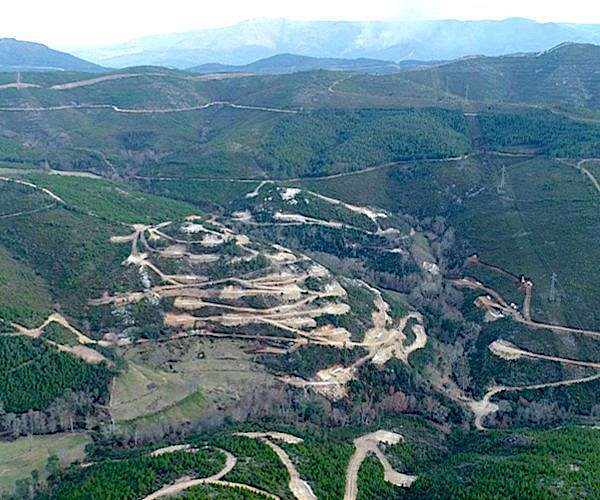The push for a new U.S. lithium mine is making some Americans wary
When Kristal Lee and her husband bought a house in Gaston County, North Carolina two years ago, they envisioned a forever home. But a planned lithium mine gives Lee sleepless nights.
Nearby is an area earmarked for a $1.2 billion project to produce battery-grade lithium for U.S. electric vehicle (EV) supply chains – one of only a few such sites in the country.
“You get very worried when you hear about it,” she said of Piedmont Lithium’s project.
“We don’t really have the ability to move right now, especially with the economy and inflation.”
As President Joe Biden works to build the domestic EV and battery industries, companies are looking for supplies in the United States – where there are large lithium deposits in Nevada, North Carolina and California.
Biden’s goals include advancing the energy transition and reducing dependence on China, which supplies the bulk of global lithium-ion battery exports.
According to McKinsey & Company, demand for lithium-ion batteries will grow by almost 30 percent annually between 2022 and 2030.
But the pushback against Piedmont and others underscores how officials’ efforts are leaving some residents skeptical.
– Balance exercise –
The main risks of mining are water pollution and reducing water supplies, says Aimee Boulanger, executive director of the Initiative for Responsible Mining Assurance (IRMA).
“Moving rock to obtain minerals opens up land and risks soil and metals normally locked in the earth leaching into streams, rivers and drinking water,” said Boulanger, whose organization certifies mines for major companies.
Lee, 41, has five children and is concerned about the dust and noise from the open-pit mine where Piedmont plans to conduct blasts once or twice a day if necessary.
The company states that this would not cause structural damage in the area.
Her neighbors also fear water pollution or a disruption of the supply.
Piedmont plans to test and treat the water draining into the wells before it is used or discharged.
The company’s backups may include drilling new wells, providing access to municipal water supplies or supplying bottled water – but this hasn’t quelled the jitters.
“We must ensure that (mines) do not cause harm that outweighs the benefits,” Boulanger said.
– ‘Get it right’ –
Resident Jim McMahan said the mine’s lifespan of about a decade is another concern.
“They will provide jobs for a period of time,” said the 65-year-old retiree, who took up farming. But eventually “the jobs will be gone and maybe the farms too.”
Cutting emissions can be a legitimate argument for developing new industries, notes Locke Bell, 73, a retired district attorney.
“I want clean air,” he said, “but I don’t want the reckless destruction of the earth and its waters to produce minimal amounts of lithium.”
This month, Piedmont Lithium received a mining permit from the state of North Carolina, but more local permits are still needed.
Chad Brown, chairman of the Gaston County Board of Commissioners, said, “We’ve got to get it right. They’ve got to make sure they give us certainty.”
He said a decision could be made in November.
Lee learned about the mine a year after moving to her current home, when Piedmont sent the family a gift of coffee and a note.
“I’ve lost enough sleepless nights,” she said.
– Negative opinion? –
Piedmont’s project is expected to produce 30,000 tons of lithium hydroxide annually, which will “significantly” increase U.S. capacity.
The world’s largest lithium producer, Albemarle, is also working to reopen a dormant mine in Kings Mountain, North Carolina.
The company said it benefited from policies like the Inflation Reduction Act and received nearly $150 million through a Department of Energy grant to support costs.
Biden has struggled to win over Americans with his economic policies, despite the surge in investment they have brought about.
In Gaston County, the situation leaves a “negative” view of the government’s push for clean energy, Bell said.
Lee said she supports clean energy but is less convinced about electric vehicles, citing a lack of charging infrastructure and high costs, even with tax breaks.
McMahan described the lithium mining process as “invasive.”
“I really don’t feel like the push for electric vehicles is something that’s being done in the way it should be done,” he said.


